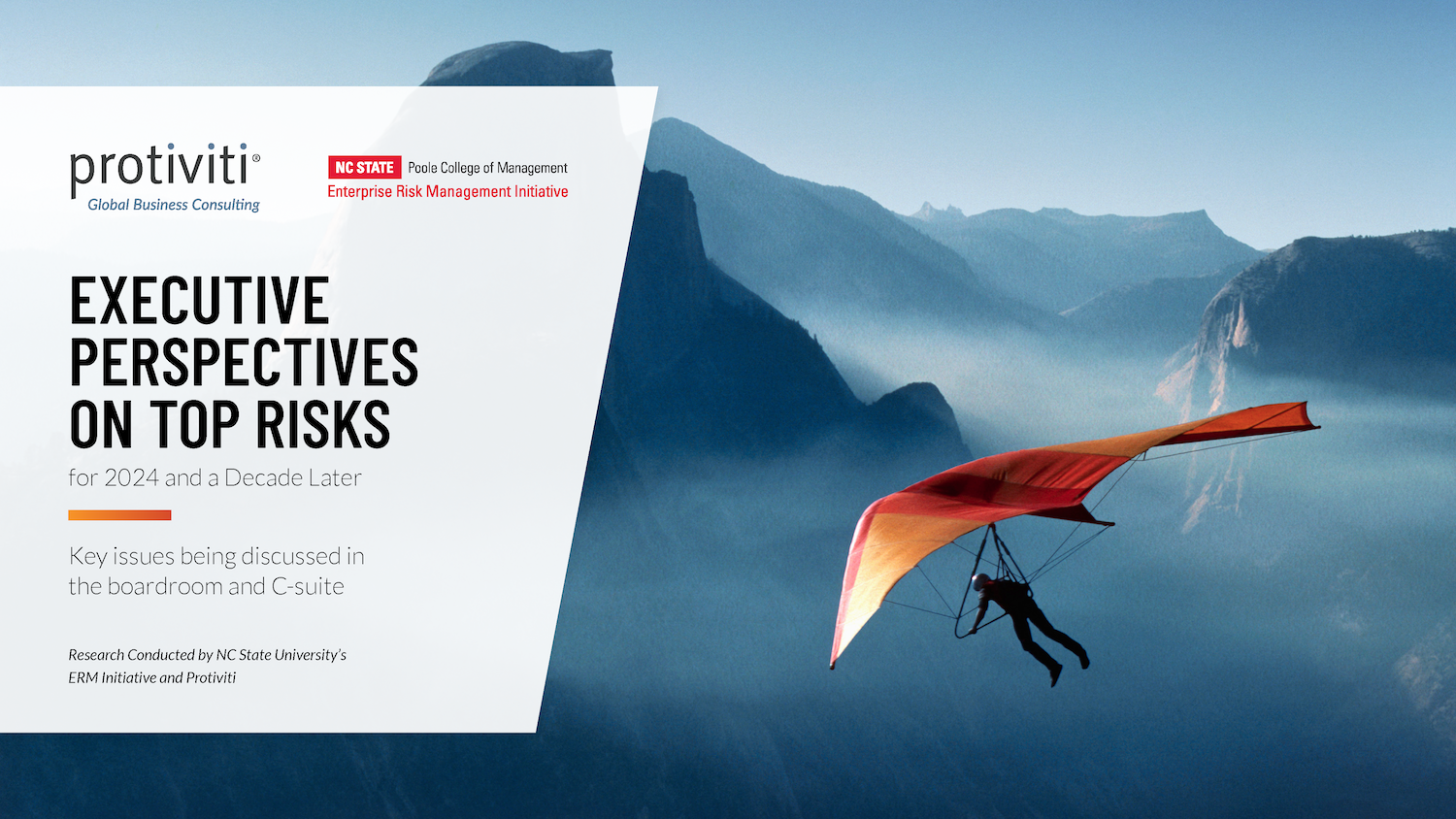Preparing for an Uncertain Future: Scenario Planning and War-Gaming
The Benefits of Creating a Risk Intelligent Enterprise
This article, “Creating a Risk Intelligent Enterprise-Scenario Planning and War Gaming” by Deloitte provides insight as to how organizations can enhance their risk intelligent enterprise to proactively address risks and leverage new opportunities. As organizations prepare to navigate the continuously evolving risk landscape, it is important they foster a risk intelligent environment that embraces uncertainty. The article discusses two activities – scenario planning and war-gaming, that companies can utilize beyond traditional mental models to identify strategic threats, missed opportunities and the potential impacts of specific risks and responses. These tactics allow an organization to be more flexible and agile when risks occur which leads to more resiliency in achieving in strategic objectives.
Where to Start in Identifying the Impact of Risks and Missed Opportunities
The goal of any risk management program is to be in a position to appropriately identify, respond to and manage risks, as well as taking advantage of new opportunities. Per the Deloitte article, if assumptions have not been tested or the complete range of responses and potential impacts are limited, the following three questions arise:
- How can we embrace uncertainty and avoid making untested assumptions about the future?
- How can we test the impacts of future conditions and events on our strategies and responses?
- What could strengthen the chances of success of specific strategic initiatives, such as product launches and price changes?
Scenario planning and war-gaming help management to achieve a reasonable level of comfortability amid uncertainty. These tactics also augment decision making, as they link decisions and strategic initiatives to relevant uncertainties.
What are the Benefits of Scenario Planning?
Scenario planning allows an organization to gain a broader view of potential futures and alternatives that might challenge assumptions and current operations. The goal of scenario planning is to help an organization be better prepared for any type of activity in the future that could impact its strategic goals. Scenario planning identifies warning signs that may require management to alter strategies and consider different risk mitigation methods, relating to both risks and potential opportunities. Per Deloitte, there are key questions to consider which allow for a broad range of uncertainties to be recognized and properly examined. For example: “What is the critical question for this scenario,” “Which of the uncertainties could have the most significant impact” and “How will we know when something has changed.”
Organizations must understand the purpose and think openly about risks and opportunities to derive the greatest benefit from scenario planning. It is also imperative to involve senior management in the process and utilize narratives and storytelling to better illustrate risks and scenarios.
What are the Benefits of War-gaming?
The goal of war-gaming is to allow organizations to create, test, rehearse, and refine strategies and responses in a realistic environment. War-gaming and simulations allow management to deviate from conventional mental models in an effort to uncover threats and missed opportunities of strategic decisions. Although war-gaming is primarily used for cyber events, it can be applied to a broad range of strategic issues. Organizations can analyze how competitors, regulators, and consumers will respond if a specific strategy is implemented or explore how employees might react to strategic culture changes. The utilization of this tactic is extremely valuable when the actions of external parties affect the specified circumstances. War-gaming helps to gauge the potential impacts of externally facing efforts such as product launches or price changes where the reactions of outside parties can affect the results.
Summary
Scenario planning and war-gaming enhance risk management practices by combining innovation and consistency to identify risks and potential opportunities that would otherwise go undetected. This approach contributes to an outside-in point of view, allowing organizations to see themselves in the context of the external environment. Organizations should strive to become Risk Intelligent Enterprises, positioning the company to properly plan for and effectively respond to an uncertain future.
Original Article Source: “Creating a Risk Intelligent Enterprise -Scenario Planning and War Gaming”, Deloitte, 2019
- Categories:
- Types:


